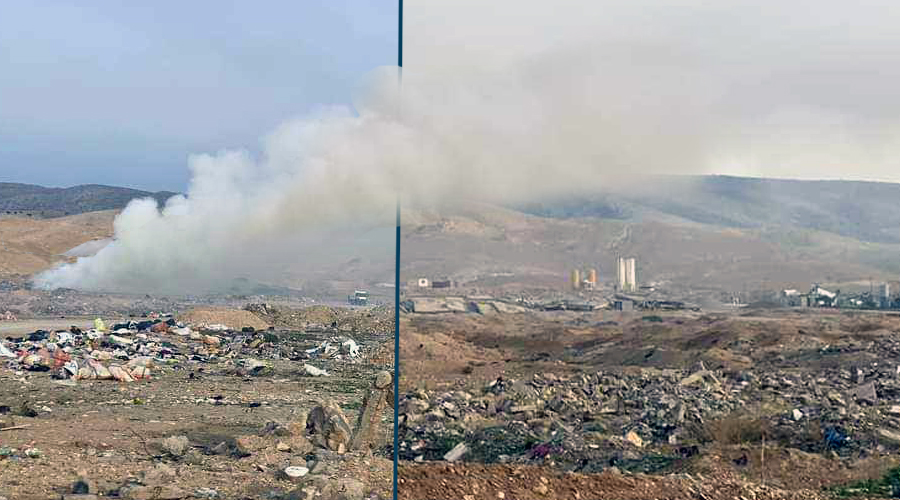The municipality of Shingal district of Nineveh Province is dumping garbage ten kilometers from the city center, which has disturbed the residents of 10 villages, due to the spread of smoke and the smell of burning garbage.
The villages are located in western Shingal and have been demanding a solution to the problem for several years.
Kamal Saado, a resident of Wardiya village in the west of the district, said: "The municipality of Shingal throws garbage two kilometers away from our village, people come and burn it leaving the smoke and odor for us and spreads in this area.”
"The smell has bothered us. Children and the elderly who have asthma have problems. The municipality should find a solution, including putting the garbage underground so that it does not burn and the smell does not spread,” he added.
The local authorities have no alernatives due to lack of suffincient budget and manpower in all utilities leading to poor public services.
Rana Hassan, deputy director of the Shingal municipality, said that when they collect garbage and throw it outside the city, they do not bury it at first, but a week or two later they go and bury it.
“We don't have any recycling plant; we have to bury everything... But some people burn the garbage before we bury it, which causes smoke and bad smell to spread to the villages,” Hassan said.
We don't have any garbage recycling plant
The municipality does not seem to have any other measures besides the traditional methods of dumping garbage and debris.
The district of war-torn Shingal, 120 km west of Mosul, the center of Ninewa province, is home to the non-Muslim Ezidi minority heavily targeted by the Islamic State in Iraq and Levant ISIL group in August 2014 and one of the disputed territories between Baghdad and Erbil.
Iraq produces around 30,000 tons of solid waste every day, says the United Nations Developing Program UNDP Iraq in a report out in June 2022. “The country lacks real waste management infrastructure to dispose this waste in a proper way that ensures no negative environmental nor health effects, therefore, most of it gets disposed in unregulated landfills.”
Despite the difficulties the country faces when it comes to waste management, as part of the peer-to-peer component of UNDP’s Supporting Recovery and Stability in Iraq through Local Development program, funded by the European Union, two waste management projects are being implemented in Nineveh and Thiqar as a partnership between the European peer: PIN Prato of Prato Italy and the local authorities in both provinces.
According to Hassan, after alerting the police a few days ago, they took legal action against a number of people who burnt the dumped garbage. She called it a measure to solve the problems of these villages.
However, a source in the Shingal police told KirkukNow that no one has been arrested on the issue of burning garbage and stressed that "no one has asked us to take legal action on the issue of burning garbage.”
Maher Khalaf, a journalist who lives in Nasra neighborhood of Shingal, told KirkukNow, “The garbage collected by the Shingal municipality and then thrown away, sometimes takes a month to bury it while it must be buried daily in order not to be burned.”
According to KirkukNow's observations, unemployment, the deterioration of public services such as electricity and water, and the slow reconstruction work in Shingal are among the main reasons behind the return of the Internally Displaced Persons IDPs from their hometowns to tents in the camps of the adjacent Iraqi Kurdistan Region IKR.
There are 16 camps for the IDPs in Dohuk Northern Governorate, in which more than 26,000 families reside, while more than 38,000 displaced families live outside the camps.





